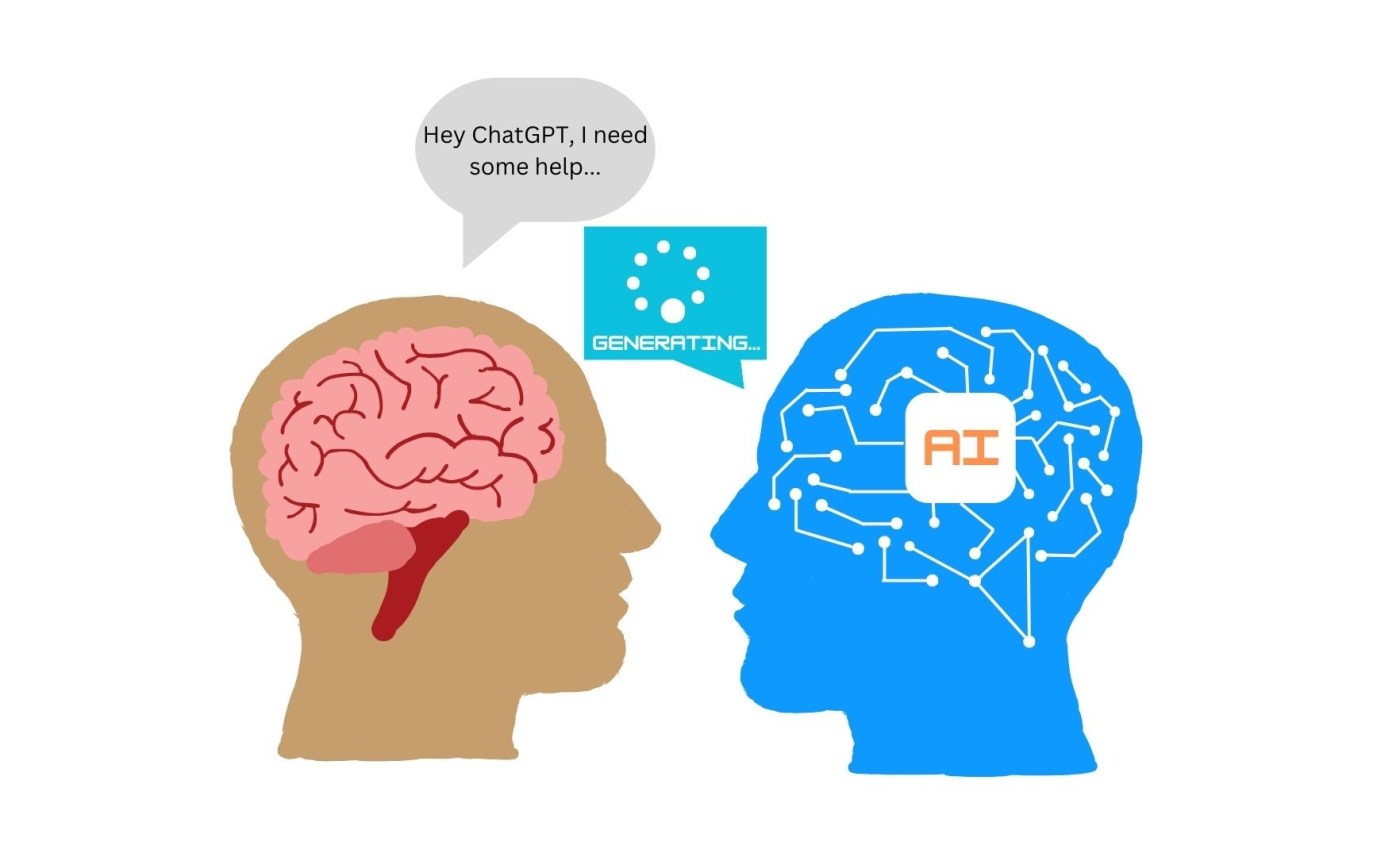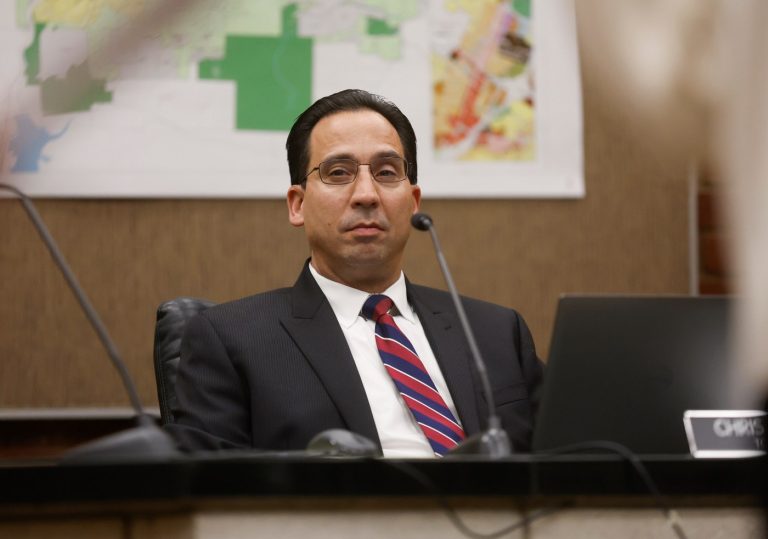Editor’s note: This story was produced for the independent Mosaic Journalism Program for Bay Area high school students, an intensive course in journalism. Students in the program report and photograph stories under the guidance of professional journalists.
High school student Amrita Venkatesh remembers the night she spent panicking in her room, stressing about college admissions and the fate of her education.
As she frantically looked over her transcript and spiraled into a tunnel of doubt, she turned to ChatGPT, her most convenient source of support. When she typed in her worries and fears, the program responded with just the consolation she was looking for: a reminder to calm down. It offered some college application advice.
For many teenagers, digital tools such as programs that use artificial intelligence, or AI, have become a go-to option for emotional support. As they learn to navigate and cope in a world where mental health care demands are high, AI is an easy and inexpensive choice.
Venkatesh, who will be a senior at American High School in Fremont in the fall, said she always ends up convincing herself she doesn’t need therapy. “I would rather take a different approach than pay that price. The cost of therapy isn’t changing any time soon.”
Related Articles
San Jose Museum of Art exhibit looks at Mexican American life
San Jose rolls through open streets for Viva CalleSJ
Pride flag raisings continue to show solidarity with LGBTQ community
Cricket culture finds footing in Bay Area
Leaders, students lament lagging Latino representation in news media
Luz Campuzano, senior recreation leader at the Alum Rock Youth Center in San Jose, works with teens daily and said she isn’t surprised by this new coping mechanism. “It’s easier, right? They don’t want to tell their parents that they need help. Their parents, especially in the Latino community, shy away from that. They’re kind of like ‘No, handle it yourself, grow up, suck it up.’”
Downloading free apps that utilize AI mental health support, such as Calm and Fabulous, is becoming more common among teenagers in the Bay Area.
However, Jasmeet Rakhra, a certified substance abuse counselor, said that relying on a robot for responsive communication — especially when you are at your most vulnerable — raises a few concerns.
“AI isn’t a bad tool to use because it can help understand the person’s mental health and be able to give out tips and coping skills,” she said. “But because it’s a robot it has no feelings, so there’s no empathy or compassion. When talking to a person, they can understand when someone is feeling upset or angry, but with a robot, it can’t.” Rakhra works for Prodigy Healthcare Inc. in Fresno.
Dwija Kothari, who will be a senior at Fremont’s American High, uses an AI-based self-care app called Fabulous for mental health support. She said she prefers the app over seeking in-person therapy.
“When you’re depressed, it gets really hard to take care of yourself,” she said. “Therapy is not going to be a constant thing. It’s so impractical to have therapy every day, and with therapy I feel like a therapist is not going to tell you to get out of bed or tell you to eat food or go shower or brush your teeth. AI is there for you all the time.”
Like Fabulous, many apps harness AI to create a reminder system that serves as a habit tracker, intended to turn small daily tasks into “profound and lasting change,” according to the website for Fabulous.
Some students, like Brooke Joly, who will be a junior at Moreau Catholic High School in Hayward in the fall, say they value the bluntness of AI when seeking advice or mental health tips.
“I’ve asked AI for advice a few times because I just wanted an accurate answer rather than someone I know sugar-coating,” she said by text in an interview.
The privacy and consistency that AI promises its young users does make a compelling case for choosing mental health care delivered via app.
Venkatesh, who said she has struggled with depression, said she appreciates that ChatGPT has no judgmental bias. “I think the symptoms of depression are very stigmatized, and if you were to tell people what the reality of depression is like — skipping meals or skipping showers, for instance — people would judge you for that. I think in those instances, it’s easier to talk to someone who is not human because AI would never judge you for that.”
AI can provide a safe space for teens to be vulnerable at a point when the adults in their lives may not be supportive of mental health care.
“It was just a big thing for my parents to accept, that their child needed help,” Kothari said. “So downloading an app was definitely an easier, helpful way.”
Campuzano, the youth center director in San Jose, said she thinks the appeal of using AI for mental health support has a lot to do with control.
“This is their world right now and they can’t do more. The lack of control in their lives is definitely playing a huge part. They want to be able to go places that they can’t. They want to do things that they can’t, and their parents won’t let them or teachers talk to them in a certain way, so I think just them being the age that they are means not having much control over their lives.”
Being able to receive personalized care is important, Kothari said. “I think a really big positive thing about these apps is that they can be personalized to your own likings and needs,” she said.
Campuzano agrees that AI caters to specific needs and wants as opposed to a human therapist. “But, more so, the therapist will tell you what you need to hear as opposed to what you want to hear. So, I don’t feel AI is good for mental health.”
Some mental health apps
Calm – Basic plan: free; Premium: $14.99 per month
Happify – Basic plan: free; Premium: $14.99 per month
Youper – $69.99 annually and comes with a 7-day free trial
Moodkit – $4.99 one-time payment
Fabulous – Basic plan: free; Premium: $39.99 annually; $250 for lifetime subscription, among other payment plans
Nanki Kaur is a member of the class of 2025 at American High School in Fremont.












